Embarking in your first backpacking journey could be an empowering, enjoyable, and adventurous expertise, nonetheless, the path to changing into a seasoned backpacker is commonly paved with a couple of avoidable missteps.
I began backpacking in 2005, and my first few backpacking journeys didn’t go easily. My first time was close to Mt. Rainier in Washington, and once we received to the trailhead, I noticed I forgot my climbing boots. Not desirous to drive all the way in which residence, I ended up climbing in Chacos your complete time. Evidently, my ft had been a bloody mess by the tip of the journey. We additionally didn’t pack sufficient meals, and I used to be ravenous the entire time.
One other time in 2007, my associates and I took an early season journey in California’s Emigrant Wilderness. A pair miles in, we discovered the path coated in snow, with all the path indicators being damaged in half. Regardless of not having a map or GPS, we haphazardly determined to hold on. We received fully off monitor and had no thought the place we had been. Twenty-four hours later after tenting close to some unknown lake, we had been post-holing our method up a snowy hillside once we randomly stumbled again on the path.


The errors I made on these early backpacking journeys taught me quite a lot of invaluable classes to learn how to be protected and have a extra gratifying time on future journeys, together with the 22 nights I spent on the John Muir Path.
Beneath I share the most typical newbie backpacking errors so you possibly can hit the path feeling assured – and make sure you don’t make the identical rookie errors as I did!
Sponsored by REI Co-op
REI Co-op is my favourite outside gear retailer and a long-time supporter of my work right here at Bearfoot Concept. Their 1-year return coverage for Members is hands-down the most effective within the business, and Members additionally get 10% again on their purchases yearly.
This put up could include affiliate hyperlinks.
1. Overpacking
Overpacking is a typical newbie backpacking mistake that may – fairly actually – weigh you down and make you depressing. You’ll probably be carrying 20-30+ kilos in your again, which is hard sufficient with out including pointless gear.
Right here I listing among the objects newbie backpackers carry that you just don’t want:
For an inventory of what it is best to carry, try my 3-day backpacking packing guidelines.
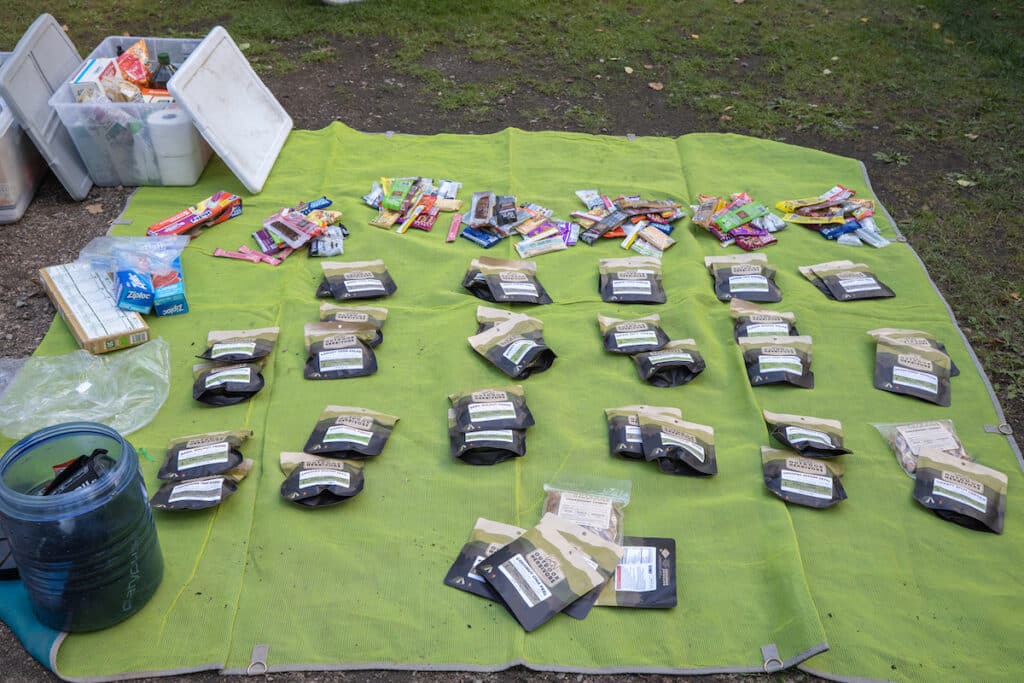

Packing Tip
When packing for a backpacking journey, lay all the things out together with all of your garments, gear, and meals and see if there’s something you possibly can depart behind.
Save this put up!
Enter your e mail & I am going to ship this put up to your inbox! You will additionally obtain my weekly publication filled with useful recommendation for planning your adventures.
2. Sporting Impractical Clothes
Backpacking isn’t the time to fret about what your garments appear to be. You must select operate over style and put on clothes that’s going to wick sweat and shield you from the solar and different components.
Listed below are some suggestions for selecting the best backpacking clothes:
For extra suggestions particularly for ladies, learn my put up on What to Put on Mountain climbing.
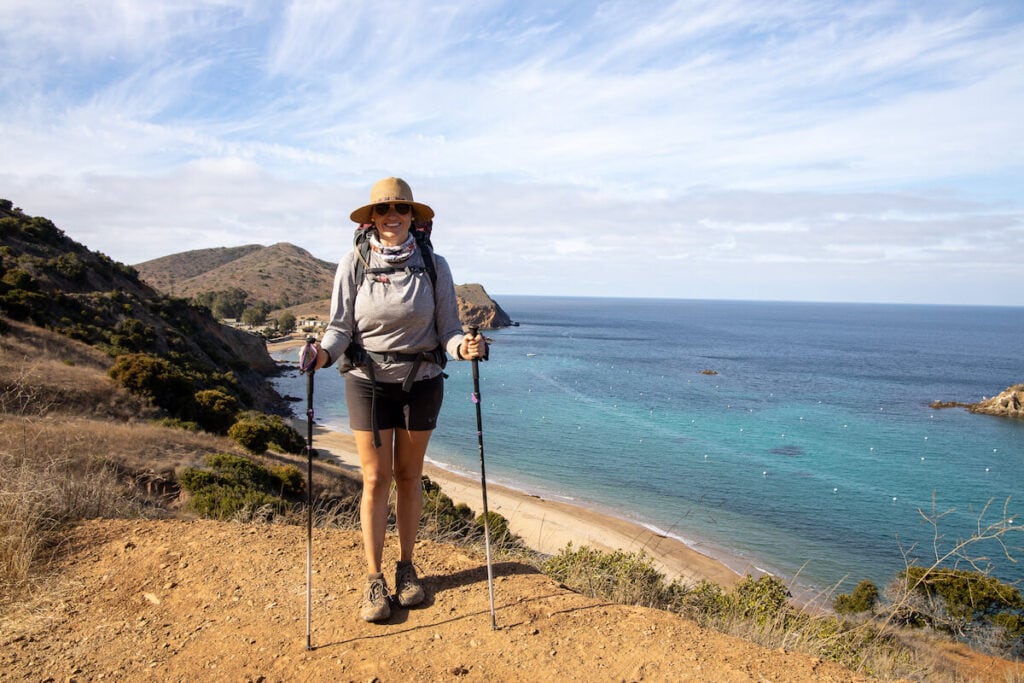

3. Packing Heavy Automobile Tenting Gear
Whereas automotive tenting gear could be luxuriously snug, it’s not designed for carrying over lengthy distances. I discovered this the onerous method on a solo backpacking journey in 2016 in New Zealand the place I backpacked with my ultra-heavy automotive tenting cookware – because it was all I had with me. The load and bulk of these things drastically impacted my means to maneuver shortly and comfortably on the path.
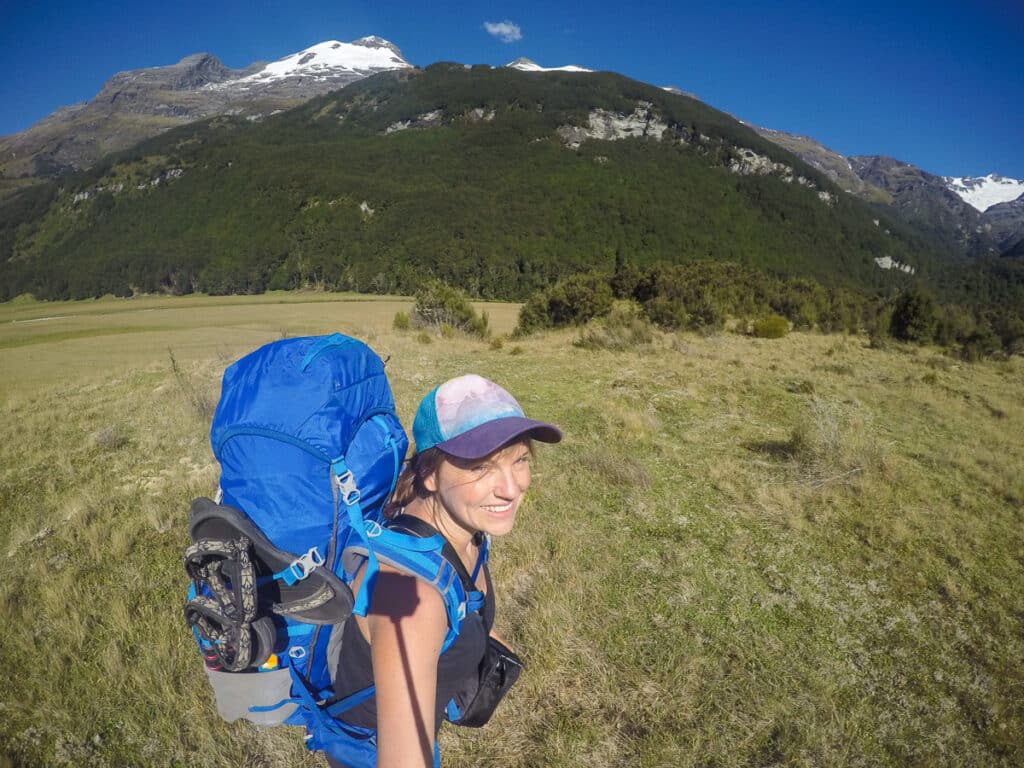

Investing in backpacking-specific gear can enormously scale back your pack weight and enhance your enjoyment on the path. Key gear items to concentrate on are your tent, sleeping bag, backpacking pack, sleeping pad, and cookware which contribute essentially the most to your total weight.
Whereas these huge gear objects could be dear, it’s price investing in high quality gear that’s light-weight and sturdy. Excessive-quality gear will final for years and can make your time on the path far more nice.
Listed below are my light-weight backpacking gear suggestions. With these options, your huge ticket objects may weigh as little as 8 lbs 2 oz. Should you’re backpacking with one other individual, you could possibly cut up a few of these objects as much as scale back your load even additional.
Should you’re trying to save on a few of these huge ticket objects, maintain an eye fixed out on gross sales at REI and take a look at REI’s Used Gear web site for large reductions on frivolously used gear, a few of which is like new. You possibly can study extra in regards to the REI Used Gear program right here.
Not able to spend money on backpacking gear?
REI affords gear leases for all of your backpacking necessities like tents, sleeping baggage, pads, bear canisters, and extra.
4. Not Bringing a Pee Rag
This tip is particular to girls. Once I hiked the John Muir Path again in 2014, I didn’t find out about pee rags. As a substitute for 22 days, I dripped dry, and even with all the swimming I did, I felt fairly disgusting.
After that journey I found the utility of a pee rag. You should utilize any fast dry towel to wipe after peeing, however I like to recommend shopping for a Kula Fabric, which is the preferred model of pee rag. It has a “clear” facet that you just maintain on to and a “soiled” facet that you just wipe with. The soiled facet is ultra-absorbent and made with an antimicrobial material. After you’re completed, you possibly can rinse it off, fold it in half with the button, and clip it to the surface of your pack.
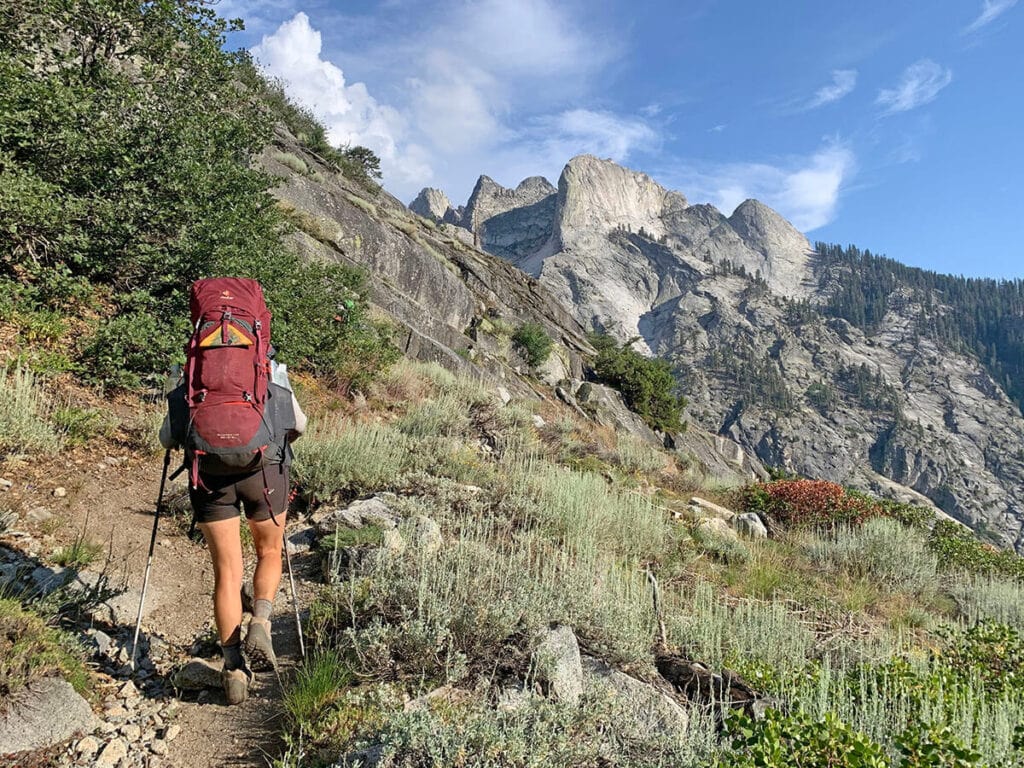

Bringing a Kula Fabric backpacking not solely helps girls preserve good hygiene within the backcountry, it additionally reduces the necessity for lavatory paper which you must pack out. When you attempt a pee rag, I promise you’ll by no means return.
5. Not Testing Your Gear Earlier than Your Journey
Familiarizing your self along with your backpacking gear earlier than you hit the path lets you perceive how every bit features, troubleshoot potential points, and be sure that all the things is in working order.
Think about reaching your first campsite solely to appreciate you’re not sure learn how to assemble your tent, or worse, discovering a malfunction in your backpacking range while you’re prepared to arrange a much-needed meal.
These conditions could be simply prevented by taking the time to arrange your tent in your yard, testing your range to verify it really works correctly, or practising utilizing your water filter to make sure you understand how it really works.
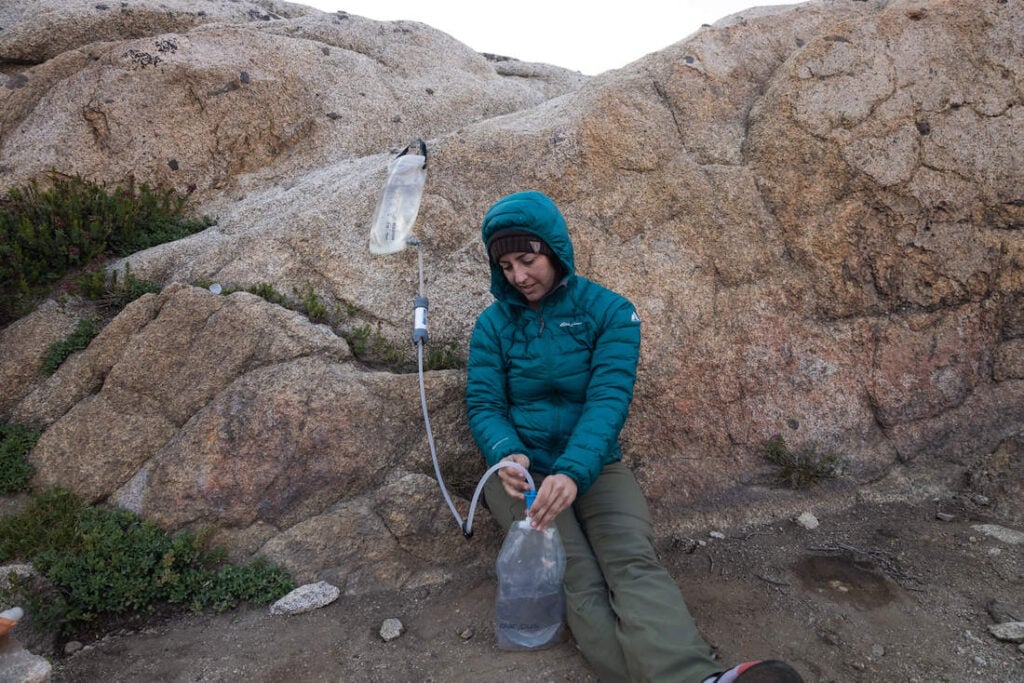

Learn Extra
Backpacking Gear Guides
6. Not Packing Sufficient Meals
On my first backpacking journey, my climbing accomplice was answerable for planning and packing our meals, and he grossly underestimated our appetites. We shared a small portion of pasta for dinner and went to mattress with grumbling tummies.
When backpacking, you’re burning a big quantity of energy every day – far more than throughout your common day-to-day actions and even day climbing. It’s vital to lookup the estimated calorie necessities for backpacking, which may vary from 2,500 to 4,500 energy per day relying on elements like your weight, the problem of the path, and the climate situations.
To satisfy these excessive caloric wants with out including pointless weight to your pack, it is best to guarantee your meals is calorie-dense. Pack quite a lot of snacks (try our favourite climbing snacks right here!) as a result of belief me – you’ll get bored with consuming the identical protein bar day after day.
As a newbie backpacker, sticking to pre-made backpacker meals is a straightforward strategy to portion out your meals – carry one backpacker meal per individual per dinner. Don’t be fooled by the “2 individual” label discovered on most backpacker meal packages – I can simply eat a two-person backpacker meal on my own after an extended day of climbing.
For suggestions on tasty backpacking meals, try my put up on my favourite light-weight, plant-based backpacking meals.
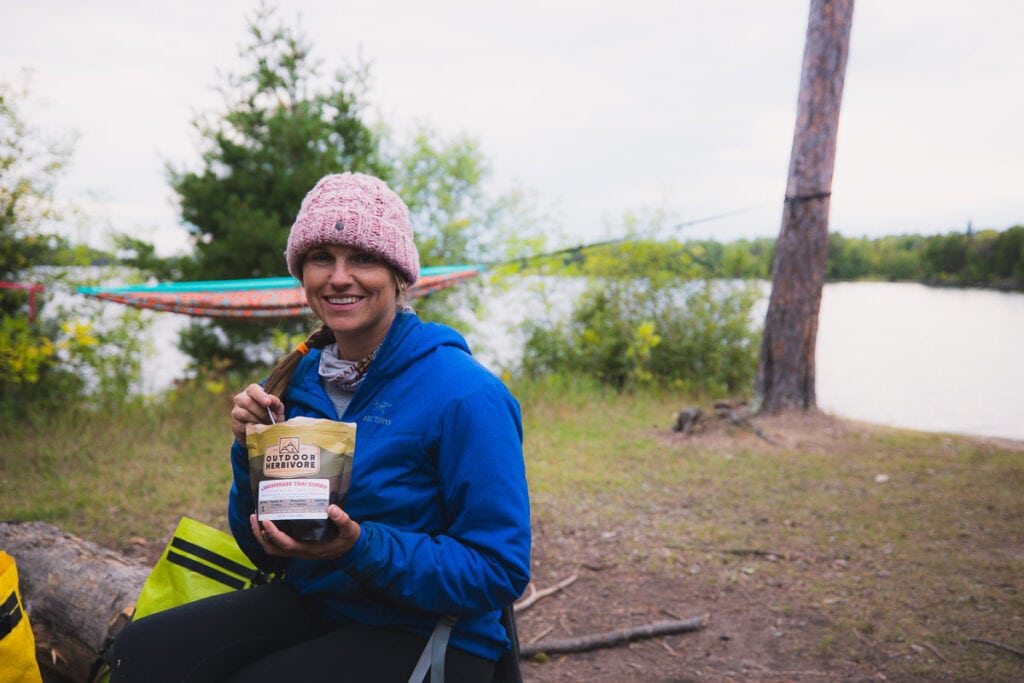

It’s equally vital to not overpack meals, as this provides additional weight to your pack (meals is without doubt one of the heaviest belongings you’ll carry!) and may make your journey extra strenuous. Earlier than you allow in your journey, lay out your meals and snacks to get an thought of how a lot meals you’re bringing.
7. Not Checking The Climate Forecast
Failing to examine the climate can result in a completely depressing expertise at finest, or at worst, a doubtlessly harmful one. At all times examine the climate forecast earlier than heading out on the path, or higher but, name the closest ranger station to get essentially the most up-to-date info.
It’s vital to analysis your vacation spot totally and perceive what climate and situations it’s possible you’ll encounter to make sure you pack appropriately and are ready for a protected and gratifying journey.
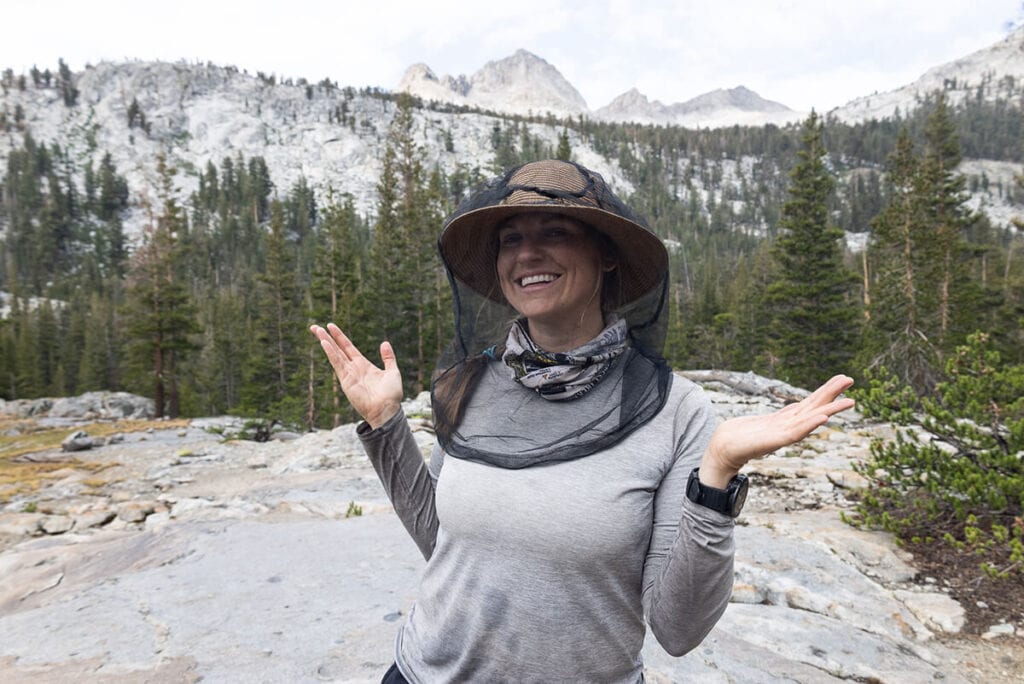

Learn Extra
Ideas For Backpacking In The Parts
Nothing can lower a visit brief sooner than painful, blistered ft. Sporting brand-new climbing boots in your journey with out breaking them in first can result in discomfort and blisters, so it’s important to put on them on some hikes forward of your journey.
Throughout the break-in interval, take note of any “scorching spots” the place your boot could also be rubbing as that is the place blisters are more likely to type. Be certain to put on thick climbing socks (I’m a fan of Darn Robust) and convey alongside some bandaids or moleskin to handle these scorching spots earlier than they change into a difficulty.
Sporting climbing boots or footwear which are too small can also be a typical newbie climbing mistake. Your ft swell when climbing, particularly in heat climate, so that you’ll need to be sure to have a bit of bit of additional house in these boots with out having a lot house that you just slide round. I like to recommend making an attempt in your climbing boots with the socks you intend to hike in and ensure they don’t really feel tight while you stroll round.
I’ve been sporting Oboz climbing boots for years and so they have by no means let me down – my favourite pair for backpacking are the Oboz Bridger B Dry Mountain climbing Boots. They’re snug, supportive, and waterproof so I really feel assured climbing in any terrain.
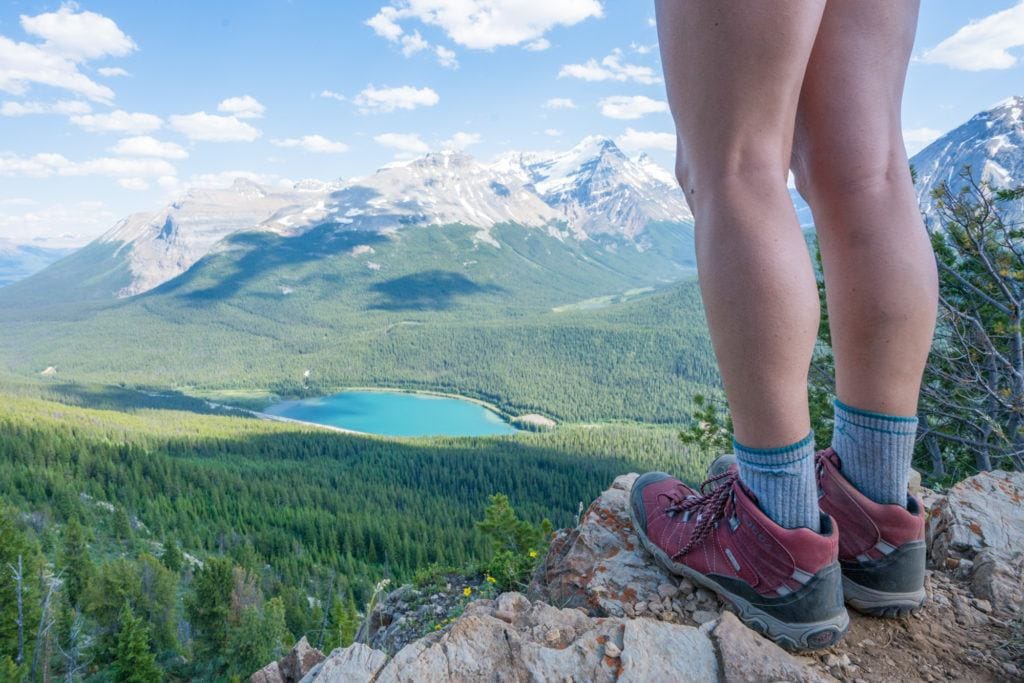

You also needs to go for wool or artificial climbing socks, as a substitute of cotton, as they wick away moisture and assist forestall blisters.
After an extended day of climbing, you’ll need to give your ft a break by switching to light-weight camp footwear just like the Teva Path Common Sandal (that are additionally nice for water crossings!). However keep away from heavy sandals or footwear which add pointless weight to your pack.
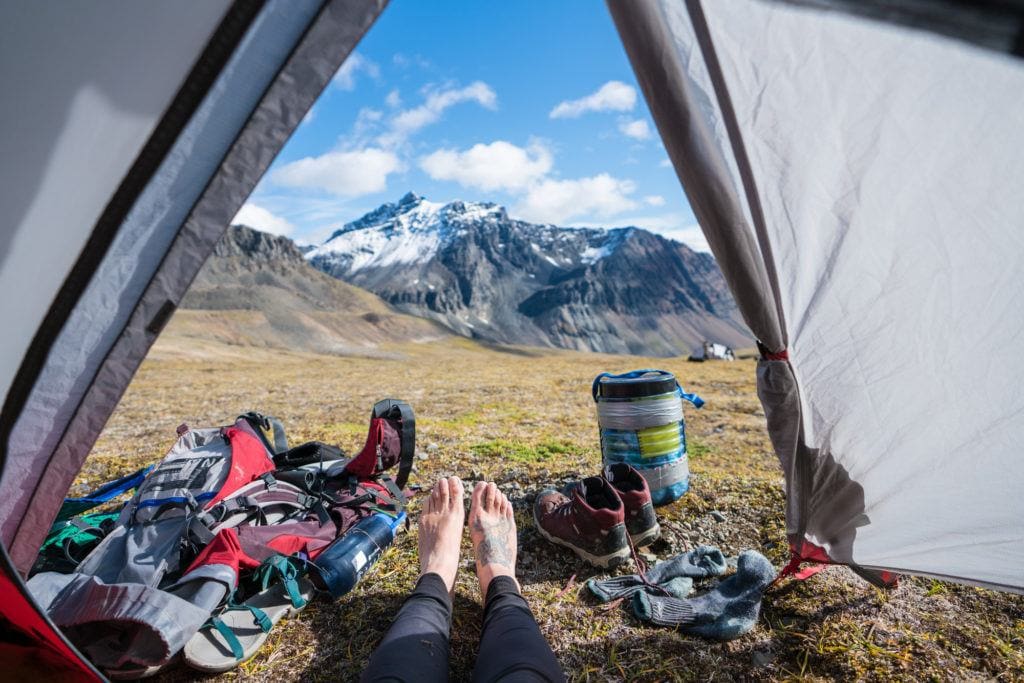

9. Not Carrying Sufficient Water
A vital newbie backpacker mistake is just not carrying enough water. Studying learn how to forestall dehydration whereas climbing is crucial since dehydration can result in decreased power, complications, or in extreme circumstances, heatstroke.
As a common guideline, I like to recommend carrying a minimum of 2 liters of water. If you understand you’ll be surrounded by water sources (and don’t thoughts stopping to refill usually), you may get away with much less. Should you’re backpacking in scorching climate or climates the place water isn’t simply accessible, plan to hold 3-4 liters.
I carry 2-3 of those light-weight 1L water bottles when backpacking. They’re good for carrying additional water for longer, drier stretches of the path. Once you’re not utilizing these water bottles, they simply roll up and take up nearly no room in your pack.
You’ll additionally want a dependable methodology of water purification, and when potential, decide campsites which have a water supply close by so you possibly can simply filter water for cooking too.
My favourite water filter is the Platypus GravityWorks Water Filter System as a result of it’s really easy to make use of. Moderately than pumping water and getting a bicep exercise, you possibly can sit again and calm down, letting gravity do the work.


10. Not Utilizing Trekking Poles
Trekking poles might sound pointless and even nerdy at first look, however trekking poles have so many advantages! They scale back the impression in your knees and assist evenly distribute your weight, particularly throughout descents, which may also help scale back the impression in your joints and stop accidents.
In addition they present stability on the path when crossing uneven terrain or navigating stream crossings, particularly because you’re carrying a heavy load in your again that may simply knock you off steadiness. When you attempt backpacking with trekking poles, you’ll by no means return.
Should you’re in search of a pair, these Black Diamond Path Again trekking poles are a fantastic decide – they’re light-weight, pack down small, and are adjustable so that they’ll match almost any measurement, plus they’re budget-friendly as well.
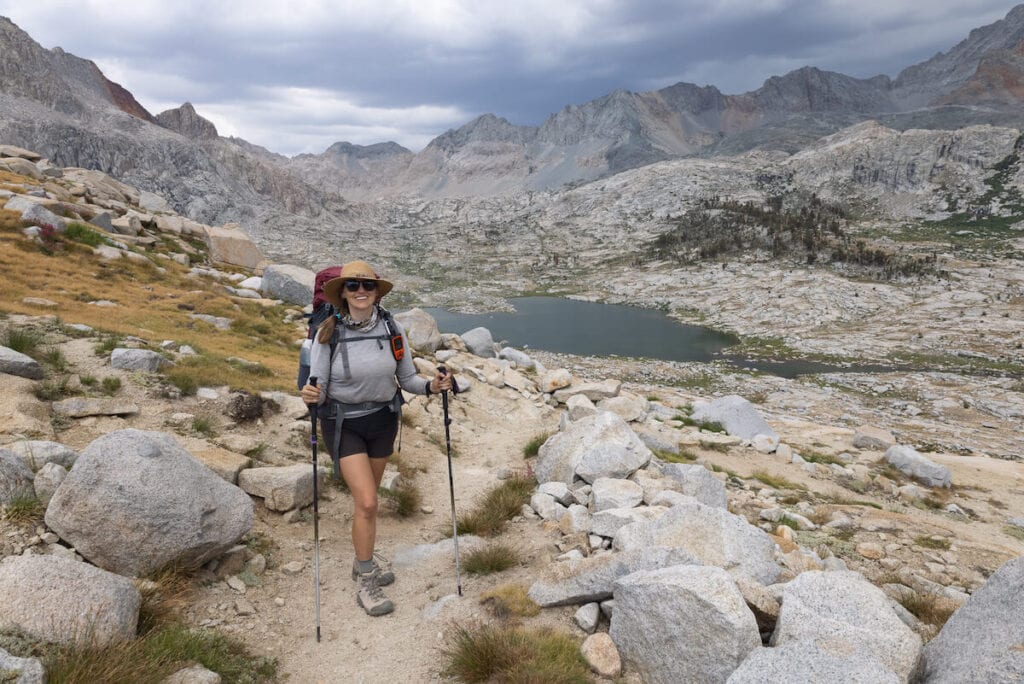

11. Not Doing Sufficient Analysis & Planning
Completely understanding the path you might be about to deal with is a vital a part of protected and profitable backpacking – and one that’s usually ignored by newbie backpackers.
First, be sure you lookup allow necessities and any rules for the world – many in style backpacking trails require permits that go on sale as much as a yr prematurely. You’d hate to plan your journey and present up on the trailhead solely to appreciate you want a allow! Be taught extra about learn how to plan a backpacking journey right here.
Subsequent, be sure you learn up on present path situations and potential obstacles to make sure a protected backpacking journey. For instance, there should be snow on the path (as I described in my story earlier) or hazards like fallen bushes. To do that, lookup path data on the corresponding state or nationwide park web site and search for current critiques on a climbing app. If there’s any uncertainty, name the native ranger station to get essentially the most up-to-date info on path standing and security issues.
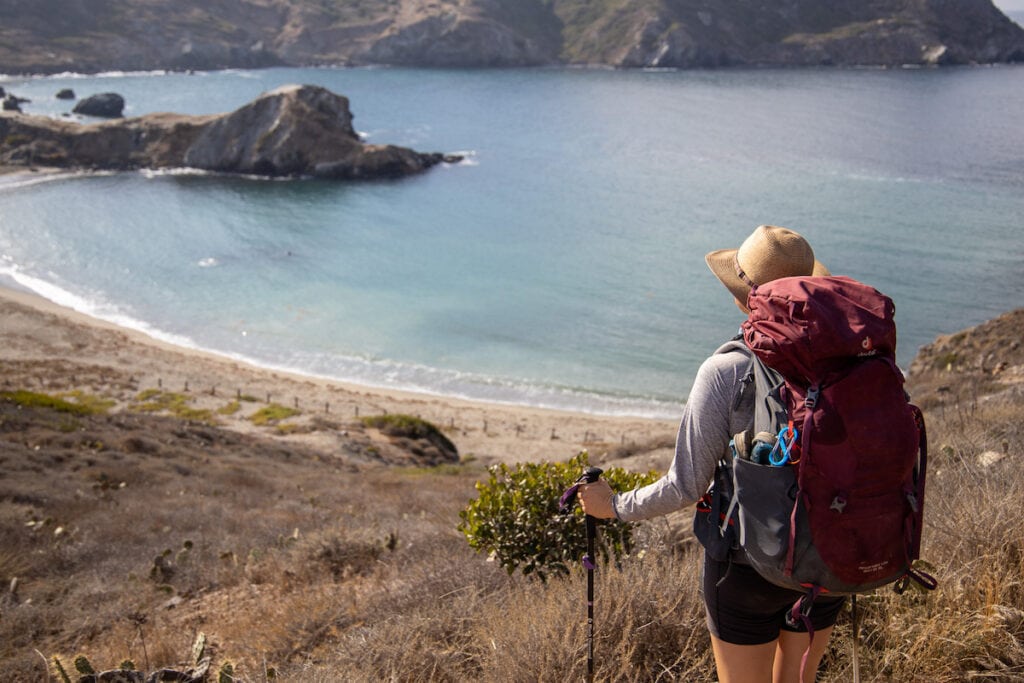

12. Not Bringing Maps & Getting ready to be With out Service
Figuring out learn how to keep away from getting misplaced is a very powerful security tip for any backpacker. You must:
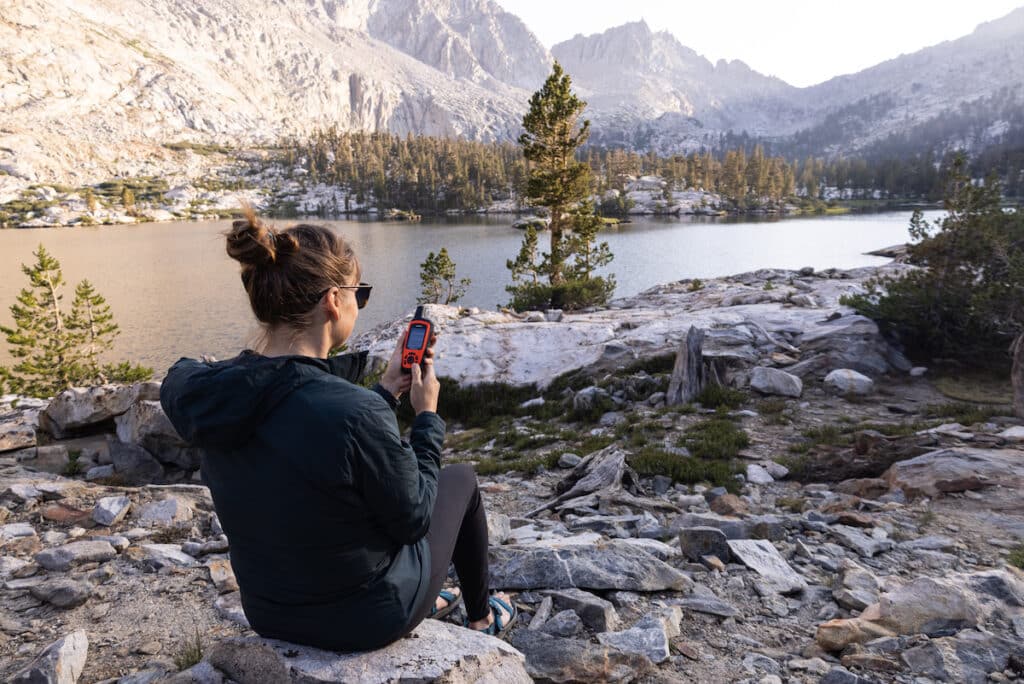

13. Not Charging Your Electronics
Think about establishing camp the primary evening and realizing you forgot to cost your headlamp or swap out the batteries. Or hitting the path and realizing you didn’t totally cost your telephone or GPS gadget that you just plan on utilizing for navigation.
Be sure to cost your whole electronics together with your headlamp, telephone, GPS gadget (just like the Garmin inReach Mini I exploit), digital camera, and another gadgets you could carry alongside.
Should you assume you’ll want extra energy, carry a small transportable battery pack like this BioLite Cost Energy Financial institution.
14. Planning an Overambitious Route
Efficient journey planning includes being reasonable about your climbing skills. Overestimating how far you possibly can hike every day can result in exhaustion, harm, or working out of meals and water.
It’s higher to plan for a low-mileage, beginner-friendly path to your first backpacking journey and deal with it as a “shakedown” journey to get ready and psyched for more durable and longer-mileage journeys.
To your first journey, I recommend a one-night journey. It is going to assist you to gauge your consolation degree and skills and check your gear with out over-committing to an extended stint within the wilderness.
It additionally supplies a manageable introduction to carrying your gear, establishing camp, and cooking outside with out overwhelming you with too many logistics.
On the lookout for a beginner-friendly path? Browse all the backpacking journeys I’ve written about for inspiration.
15. Not Researching Wildlife Forward of Time
In the case of backpacking, one frequent newbie backpacking mistake is failing to be correctly bear and wildlife conscious. Figuring out the native wildlife is just not solely essential to your personal security but in addition for the well-being of the animals it’s possible you’ll encounter alongside the way in which. There may additionally be rules concerning meals storage that you could comply with.
In bear nation, it’s important to know the right methods for storing meals. Most locations require you to use a bear canister or bear baggage to safe your meals.
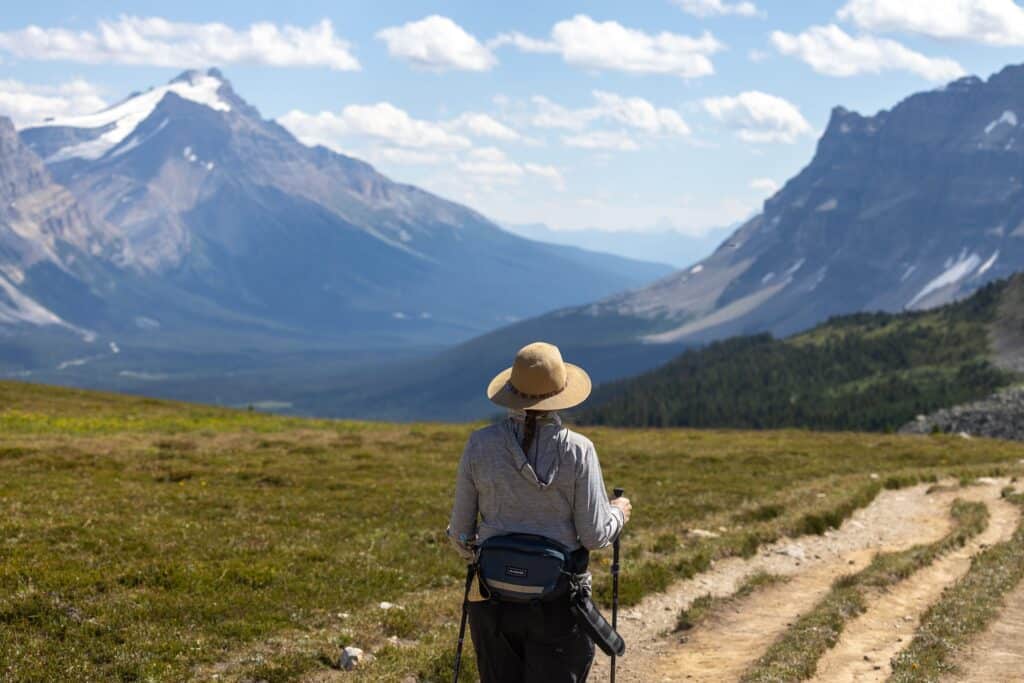

Listed below are another suggestions for backpacking in bear nation:
Nonetheless, bears aren’t the one wildlife you ought to be conscious of. Relying on the area you’re backpacking in, it’s possible you’ll encounter different animals like rattlesnakes, marmots, or different critters.
It’s essential to coach your self about these native inhabitants and learn to work together with them safely. For instance, at Havasu Falls, a bear canister or hanging your meals is now required as a result of squirrels and different critters will chew by means of your tent and backpack to entry meals. That truly occurred to us the primary time we went to Havasu Falls. We put our packs right down to go for a swim, solely to come back again to discover a rodent had gotten into our lunch.
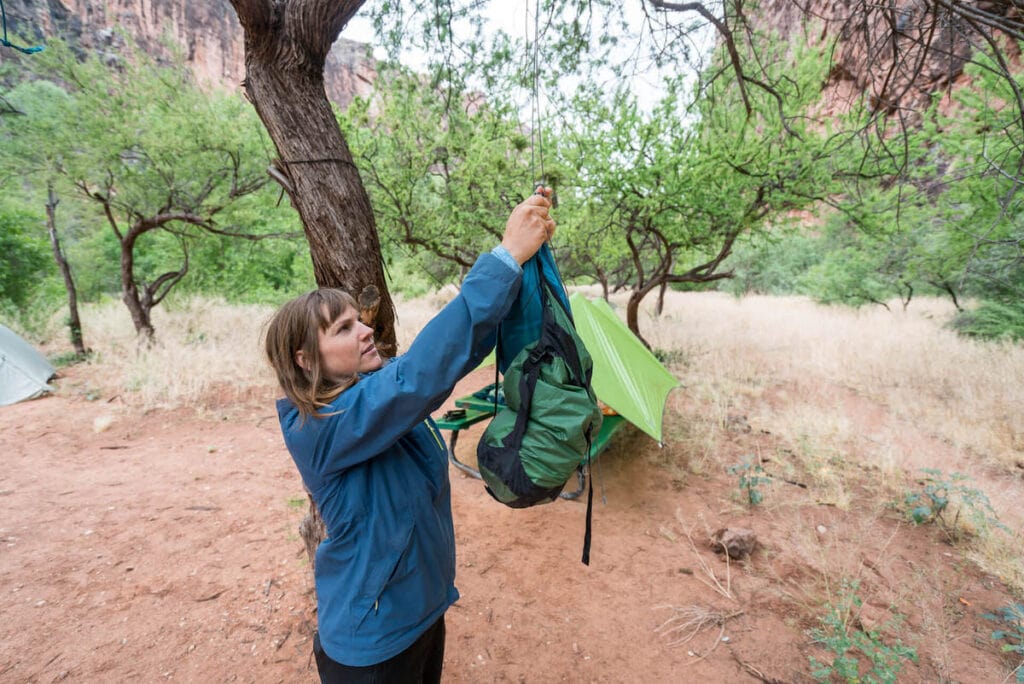

16. Not Following Go away No Hint Ideas
It’s vital for ALL backpackers (not simply newcomers!) to brush up on the 7 Go away No Hint Ideas earlier than heading into the backcountry. These ideas are a set of pointers that encourage sustainable and respectful outside practices designed to reduce human impression on the pure atmosphere.
They cowl all the things from correctly pooping outside and respecting wildlife to how to decide on a campsite. Ignorance or disregard of those ideas can result in littered trails, broken vegetation, wildlife habituated to human meals, and diminished experiences for future backpackers (or may even result in trails getting shut down).
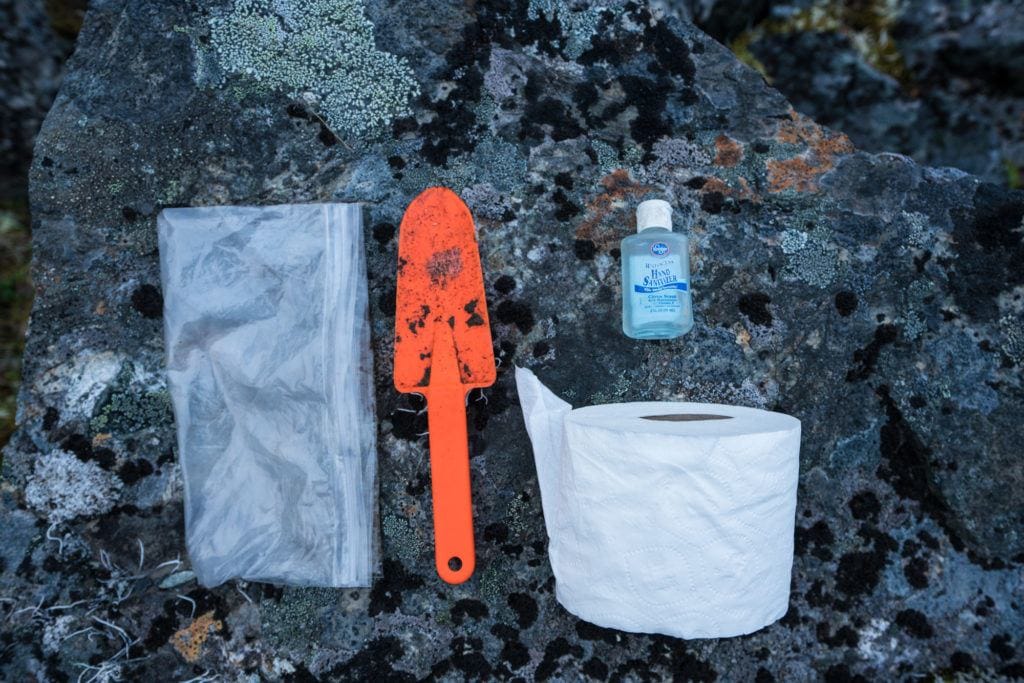

Not following Go away No Hint could cause important hurt to the attractive landscapes all of us get pleasure from. Subsequently, it’s essential for all backpackers to familiarize themselves with and decide to LNT ideas, to make sure that our wild locations stay pristine for generations to come back.
17. Forgetting Emergency Provides & Security Plans
Within the midst of the thrill of planning your first backpacking journey, don’t overlook an vital element of your planning: packing emergency provides and creating a security plan.
In the case of backpacking, carrying important emergency provides could be the distinction between a brief setback and a harmful state of affairs. A well-stocked first assist equipment ought to have a particular place in your backpack that’s simple to entry. Minor accidents can escalate shortly within the wilderness, and instant care can forestall a manageable state of affairs from turning into an advanced one.
You also needs to have some strategy to begin a hearth – both with a lighter or waterproof matches. Fireplace can serve a number of functions on the path, from offering heat and cooking meals to being a supply of sunshine and a sign for assist.
Even within the period of GPS and smartphone apps, a conventional compass and bodily map of your climbing space stay indispensable. They don’t depend on battery life or sign power and might be your lifeline for those who get misplaced. It’s an old-school strategy, sure, however one which has saved many seasoned hikers in unpredictable conditions.
Lastly, it is best to at all times depart your backpacking plans with a trusted good friend or member of the family. Sharing particulars resembling your supposed route, potential campsites, and estimated return time could make a big distinction in guaranteeing your security.
Don’t let these precautions daunt you, although! As you change into extra accustomed to backpacking, you’ll discover that these preparations change into second nature. They may serve to reinforce your expertise, not detract from it.
Keep in mind, the aim is to completely immerse your self in the great thing about the outside, safe within the information that you just’re ready for any eventuality. And belief me, with the correct prep, you’re in for an unforgettable journey!
Save this put up to Pinterest
What newbie backpacking errors do you have got questions on? Are there any others you possibly can consider? Go away us a remark beneath!


